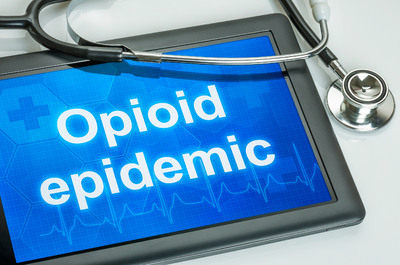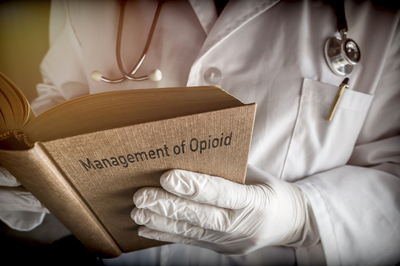
Scientists say the Cascade of Care model may offer new hope for the treatment of OUD.
How a Care Model for HIV Patients May Help Those with Opioid Use Disorders
The “Cascade of Care” model was developed in 2017 to manage treatment of people with HIV and AIDS. Now, scientists believe that the same approach can be built upon in order to provide an improved framework of care for people with opioid use disorder (OUD). Here’s a closer look at the Cascade of Care, and what it may mean for the substance abuse community.
About the Cascade of Care
“Some diseases, such as HIV, have a complex sequential cascade of care that individuals must navigate. For example, going from testing to diagnosis, receiving medical counseling, taking antiretroviral therapy (ART), and achieving viral suppression. Other life events, such as pregnancy, migration, relationship changes, or diagnostic criteria may trigger different medical interventions,” explains the Institute for Disease Modeling.
As a result, many factors could lead to a person with HIV or AIDS ending up in care at various triggered points.
Enter the Cascade of Care, also known as the HIV treatment cascade and the HIV care continuum, which recognizes the steps necessary for people in need to HIV care not only to receive treatment, but also to remain engaged in that treatment. As such, it comprises a series of interventions which can be configured to target the needs of individuals.
With HIV, the Cascade of Care begins with a diagnosis. It then progresses to getting linked to care, staying in care, taking ART, and achieving a low amount of HIV in the body.
The Cascade of Care for OUD
Earlier this year, the National Institute on Drug Abuse (NIDA) announced that scientists were investigating how the Cascade of Care could also be applied to OUD identification and treatment. Their assertion? That most people with OUD do not receive medications which reduce drug use and overdose events, and that given the overlap between the HIV and opioid epidemics, the Cascade of Care could be modified to address the latter.
Specifically, NIDA team determined that the adapted Cascade of Care framework for OUD would cover four interrelated domains of prevention, identification, treatment and recovery in four steps: engagement in care; initiation to medications for opioid use disorder (MOUD); retention; and remission. An individual’s stage of risk and need would establish an individual’s placement within the cascade.

Knowledge changes every day about best treatments for OUD. The Cascade of Care framework incorporates the latest wisdom.
In short, the universal OUD Cascade of Care framework provides a structural model through which communities could identify people and populations with OUD, while matching them with interventions proven to support outcomes and prevent diseases and deaths.
Concludes research published in The American Journal of Drug and Alcohol Abuse, “Millions of patients with OUD do not have access to quality care. These unidentified and untreated populations will continue to disproportionally contribute to the nation’s worsening overdose death rates until they are connected to effective treatment services. We hope that the OUD Cascade of Care framework will help to structure local and national efforts to combat the opioid epidemic by identifying key targets, interventions, and quality indicators across populations and settings to achieve these ends.”
There is one last thing to keep in mind. Not only are members of the LGBTQ community especially vulnerable to HIV and AIDS, but they’re also at increased risk for substance abuse disorders. The Cascade of Care offers new hope for treating both. The Cascade of Care also underscores the importance of customizing treatment for individual needs. To learn more about leading St. Louis rehabilitation center Harris House’s LGBTQ addiction treatment programs, contact us today.







